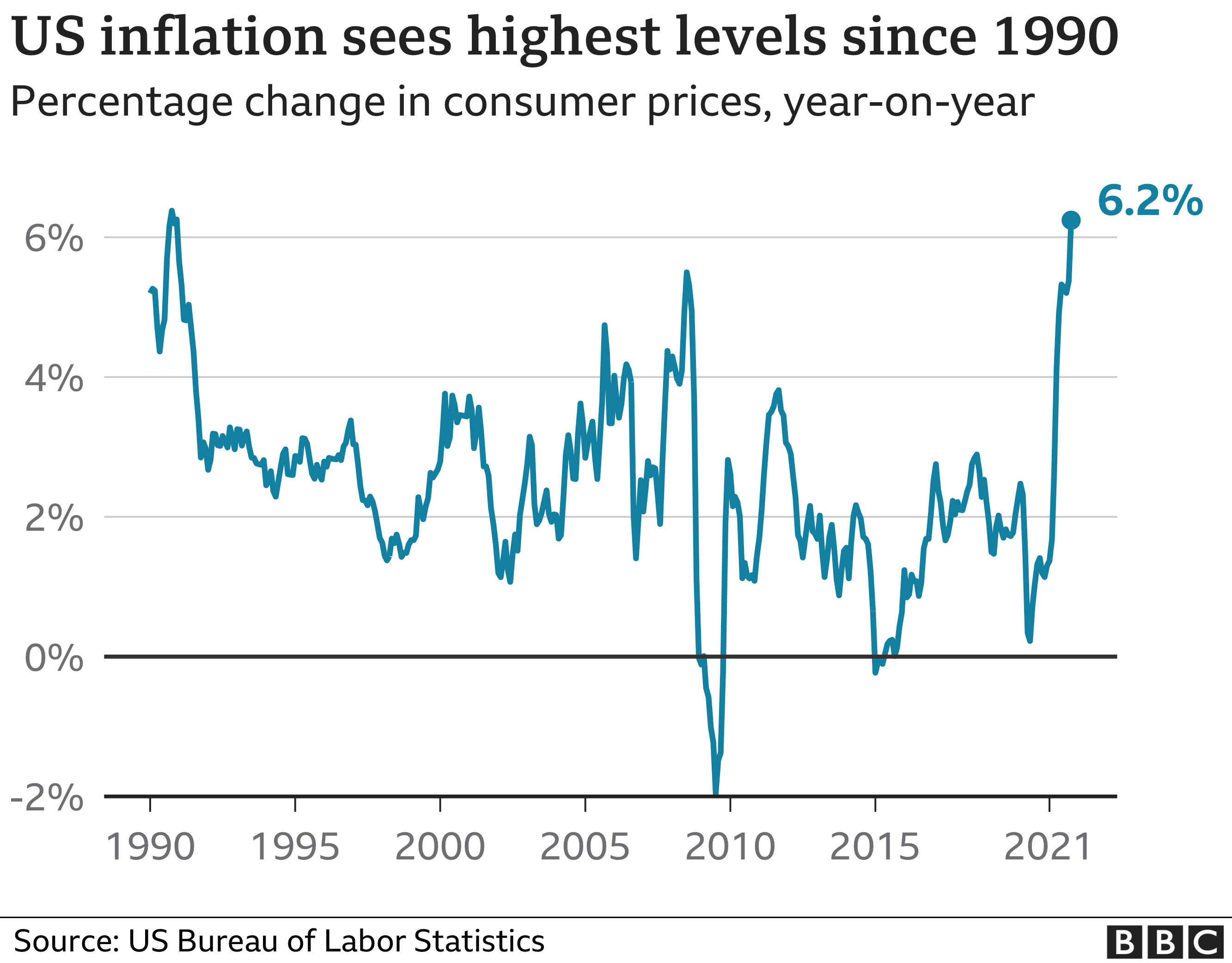US prices rising at 6.2%, fastest rate for three decades

Americans' cost of living is rising faster than it has for three decades, with food and fuel driving the increases.
The consumer prices index for October showed prices rose 6.2% over the last twelve months.
It marks a sharp jump from September when prices were already rising at 5.4%.
Inflation has been a growing concern for shoppers and policymakers this year as the impact of the pandemic persists.
Rising prices for food, shelter, used cars and trucks and new vehicles were among the larger contributors, the Bureau for Labour Statistics said.
Meat, fish and eggs rose more than other foodstuffs, while petrol, or gasoline, prices are at seven-year highs.
Almost every sector saw some price inflation, except for airfares and alcoholic beverages.
Bottlenecks in the supply of some goods, combined with increasing demand from customers as the vaccine programme allowed the economy to reopen, are partly to blame for the rises.
A shortage of staff has prompted employers to raise wages in some sectors, too, which in turn can feed into higher prices.
Even excluding the cost of food and fuel, which tend to be more volatile, prices were rising strongly at 4.6%.
Bessy Clarke says she has mostly noticed the price of petrol going up.
"Steadily every week, it gets higher and higher," she says. "I'm actively thinking about how I need to limit my gas trips."
"It takes over 30 bucks (£22) to fill my tank right now and it used to take about 23."
The 29-year-old waitress from New Orleans, Louisiana says her food bills are also rising.
"We go to our local grocery store, and things that were 40 to 50 bucks a couple months ago are now creeping over 60.
"Even in the restaurant I work at, meat prices have gone up and now we're having to pass that price on to consumers."
She's finding it impossible to save money, so is looking for a better paid job.
"I just hope that it eventually stabilises," she says.
Taken on a monthly basis, the Bureau for Labour Statistics said prices rose 0.9% in October, after gaining 0.4% in September, illustrating the pace of acceleration.
On an annual basis, prices are rising at their fastest pace since 1990.
President Joe Biden said reversing the spike in inflation was a "top priority".
However, the Federal Reserve, which is responsible for monitoring inflation and is independent from the government, has said it believes the current high rate is "transitory".
As a result, the Fed is not expected to raise interest rates soon - the usual response to rising inflation.
Last week, Federal Reserve chair Jerome Powell did announce a scaling back of the Fed's bond-buying programme, the first move towards a tightening of monetary policy.
Pressure on Fed
Many economists are warning inflation could prove more intractable as the scramble for staff and supplies continues to exert pressure on prices.
"I expect lots of eyeballs were bulging out of their sockets when they saw the number come in," said Seema Shah, chief strategist at Principal Global Investors.
"Inflation is clearly getting worse before it gets better, while the significant rise in shelter prices is adding to concerning evidence of a broadening in inflation pressures."
Shelter refers to the cost of maintaining a home, including mortgage, rent and utilities costs.
The news would "heap pressure on the Fed" to raise interest rates, she added. "Yet it is doubtful they will act before late 2022."


